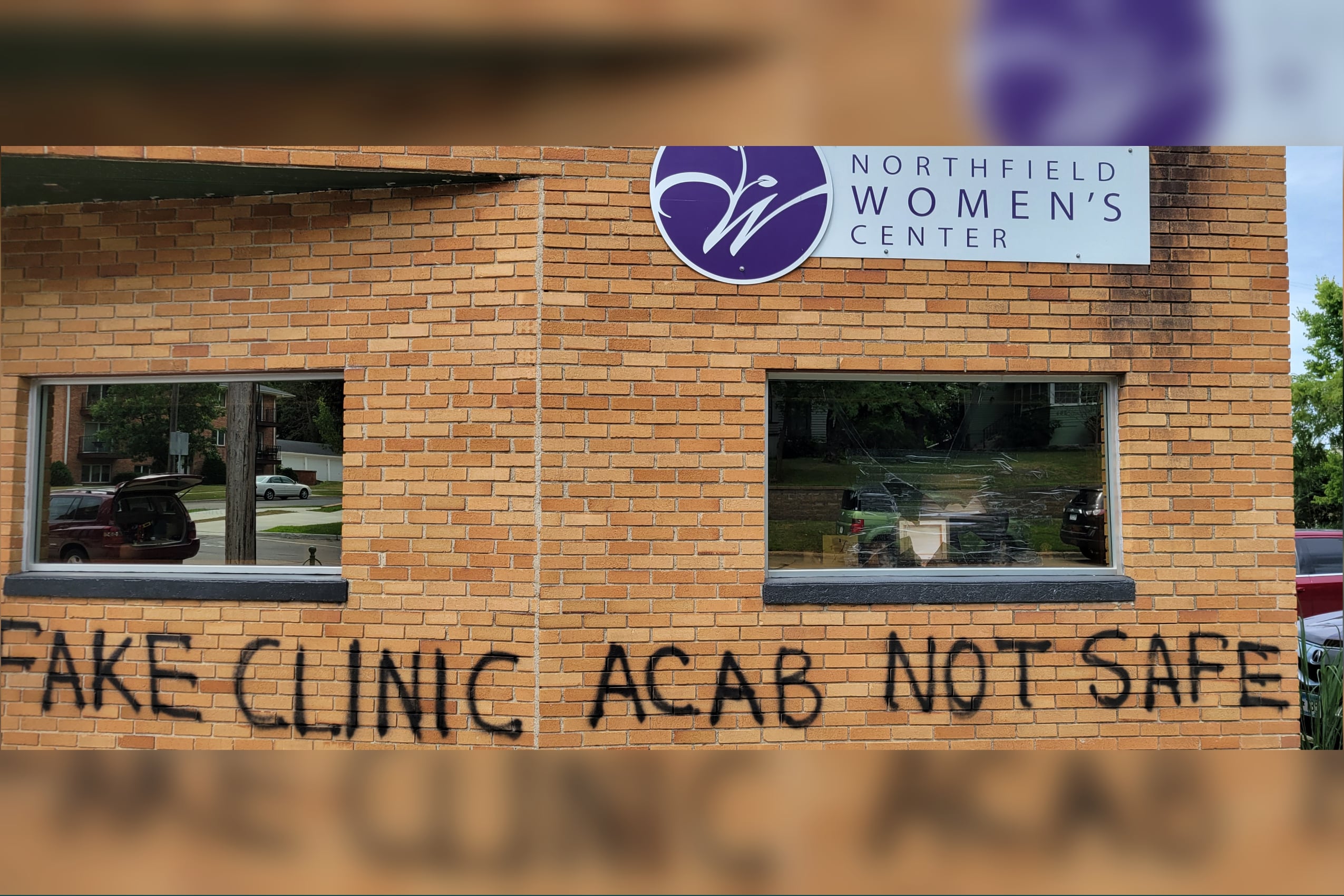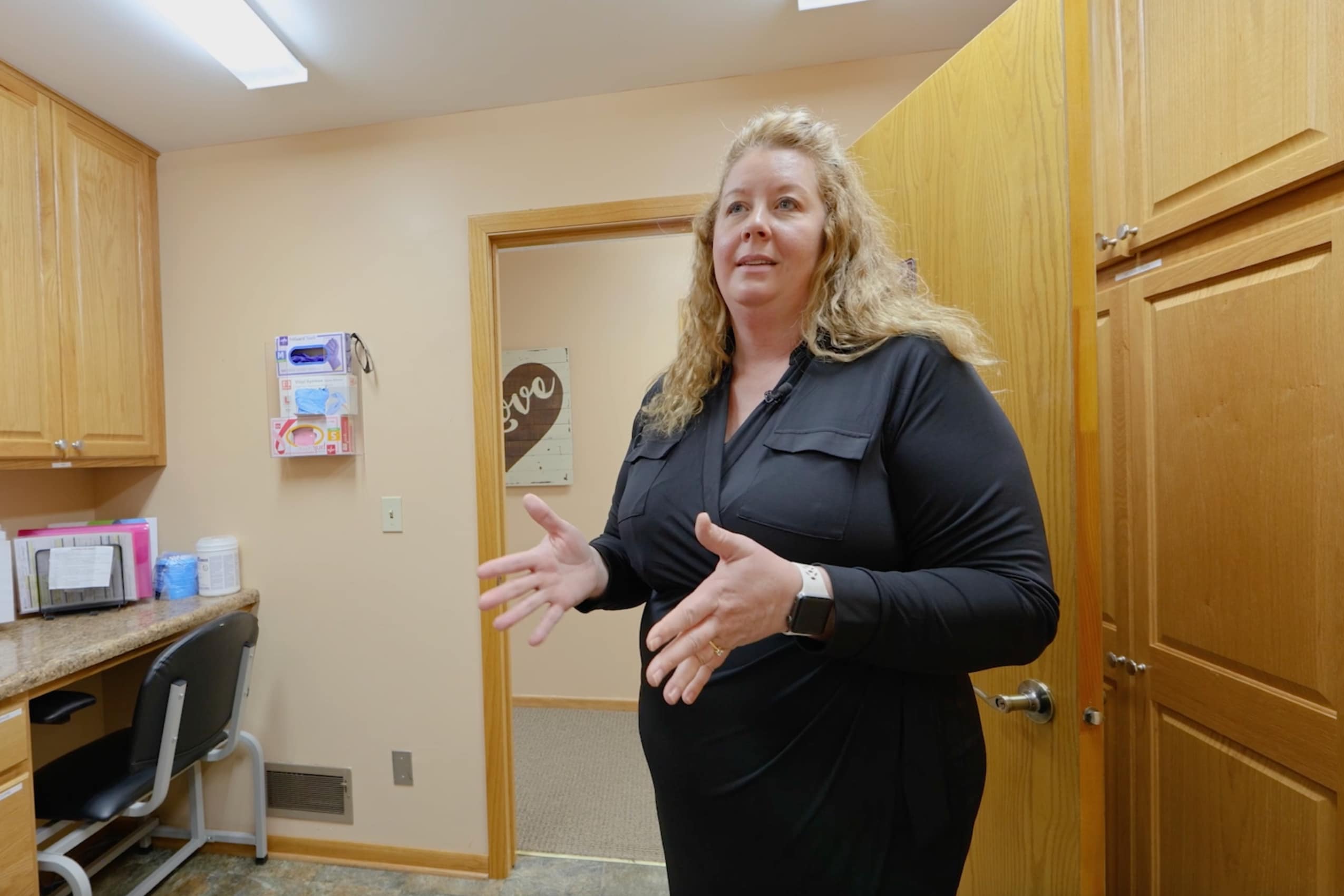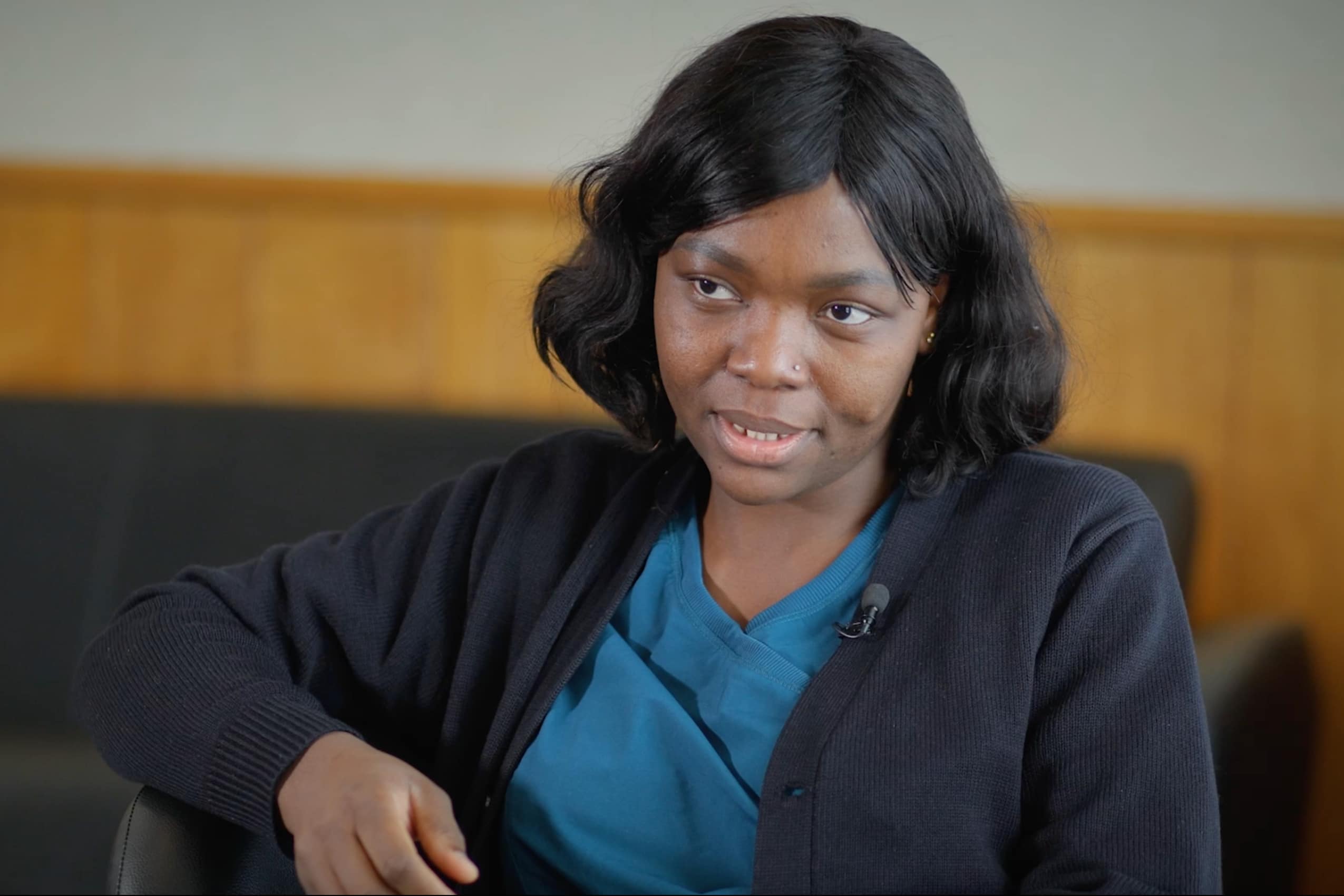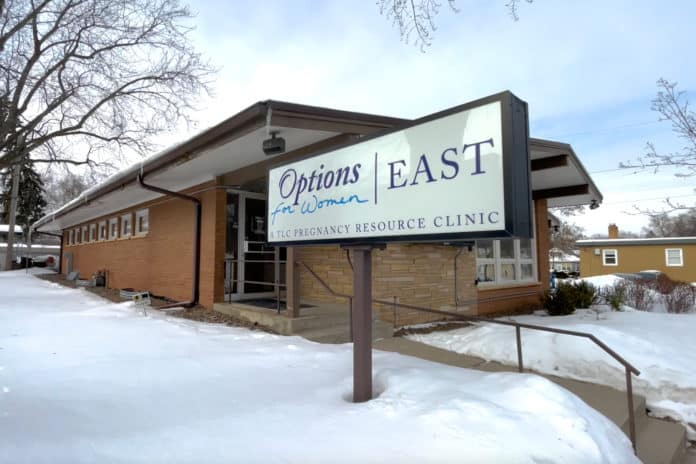Pregnancy resource centers across Minnesota are defending their work as their funding is about to take a severe cut.
They are fighting back against state leaders and the mainstream media who they say are casting them in a bad light and pushing lies about what they really do.
As executive director of Options for Women East in St. Paul, Jennifer Meyer is honest about her past.
“Options for Women has been in the community for 33 years. We serve low-income, unstable housing, difficult-situation women and their families through the pregnancy journey,” Meyer explained.
Her own journey began with a pregnancy that was never part of the plan.
“I became pregnant and had that moment of decision: ‘Oh my gosh, what do I do? Should I have an abortion and not tell anyone?’ That includes my parents, my boyfriend, anyone and just move on with my life as planned. It was not something I believed in, but it could have been an answer,” she said.
“One of the hardest things I ever did was have to tell my parents and it was not easy. I finished college. We had a child. That child now has my first granddaughter. It wasn’t easy, but life isn’t easy. I’ve been in that moment of decision of where do you go? Do you go here, do you go there? I ended up in a place like this. That’s what I want to give the women who walk through the doors here, that time to process,” Meyer explained.
Today, Meyer feels forced to justify her work after months of post-Roe turmoil. In Minnesota and across the country, centers like hers are under attack.

“We’ve had to make sure people who walk into this building are protected. We’ve had to make upgrades to our facility,” she said. “It made it harder to just do our job. And our job is to serve the women who walk through the door.”
“I’m sure their end game is just that we’re not here,” she added.
Options for Women East doesn’t perform or make referrals for abortions but provides 300 women each year with information on all of their options, including abortion, adoption, and parenting.
There is no cost for pregnancy tests, ultrasounds, STI treatment and their prenatal care program.
‘Best care possible’
“This is where we run all of our tests,” Meyer said as she took Alpha News on a tour of the facility.
“I can speak to my center, and this is what we do. We use medically-accurate information. My nurses, my doctors, my staff are all medically licensed and trained. That is an absolute. I want them to come in and get the best care possible,” she said.

Gov. Tim Walz has proposed cutting the roughly $3 million in state funds that go to 33 sites like Meyer’s each year. Gov. Tim Pawlenty started the Positive Alternatives grant program in 2005. That money accounts for nearly 40% of Meyer’s budget.
The program exists to “support, encourage and assist women in carrying their pregnancies to term and in caring for their babies after birth.”
Walz’s budget proposal objects to the fact that grantees are explicitly prohibited from “counseling on abortion and cannot refer pregnant people to providers or organizations that perform abortions.”
“We knew someday the funding could go away. That was always on the table. We knew that because we knew some people didn’t believe in it. The funding actually said it’s alternatives to abortion. They want this to be an abortion state where every single person believes abortion is the answer,” Meyer said.
Minnesota Attorney General Keith Ellison issued a “consumer alert” last summer, claiming the centers “manipulate pregnant individuals out of seeking care from certified reproductive health and abortion providers.”
“Then we have an election and come to today and we’re being told that my state funding is not necessary, that I should not have it for what I believe. You should not have it because you believe something different than I believe. That’s a slap in the face,” Meyer said.
Minnesota Public Radio recently labeled the nonprofits as “non-medical anti-abortion organizations” that “deceive pregnant people and discourage abortion.”
“I’ve had an article from MPR that told complete lies about us and they shouldn’t be allowed to do that. I finally said enough is enough,” Meyer said.
“I’m not a crisis pregnancy center; I’m a pregnancy medical clinic. I don’t deceive women. I actually give them all their options. We educate on parenting, adoption, and abortion. All types. You ask a question to my nurse, she’ll answer it. What do you need to know? We will give it to you. I feel we have to tell our story because our story is not being told,” she added. “They are just putting out lies without any evidence. There’s nothing there.”
Walz told MPR he’s ready to end the payments, repeating the claim that pregnancy centers spread “misinformation.” His office did not respond to Alpha News for comment.
“I’d like to know how they know that. I’ve never given them any cause to know that. I follow the guidelines of the Minnesota Department of Health, the Centers for Disease Control, and the American College of Obstetricians and Gynecologists. We have evidence-based programs here, but they wouldn’t know that because they haven’t asked,” Meyer said.
‘A shoulder to cry on’
Asseta Compaore came to Options last year after experiencing a tragedy.
“During birth I lost my baby. I was in a very dark place,” she said.
Within months, she was pregnant again but struggled with what to do.
“It wasn’t going as expected because I started having all of those emotions. What am I going to do? Did I feel like I was replacing that baby? Yes, I did. Did I feel like I was doing the right thing? Maybe not. Just every single day I was looking into ways of how am I going to deal with this pregnancy? It was a tough time. The first thought was should I get rid of that baby? Would that solve the issue? Maybe, maybe not, but I said I need to get in to see somebody to talk about that,” Compaore recalled.

“I walked in here crying and I sat down. But you know what? I never met those people here. Never seen them in my whole life. I walk in here and there was people to hold me. I had a shoulder to cry on. She said we are here to support you. Here’s a shoulder for you to cry on. You don’t have to make a decision right now. Did they change my mind? Yes. Because I saw someone willing to go through my pain with me and that was this place,” she added.
Her daughter Nayla just celebrated her first birthday and is adored by her parents and big sisters.
Compaore is upset that the place where she found help may have to cut down on services.
“It makes me sad to know they may have to cut down the services. Sometimes all you need to know is just to see that baby and make a decision. Seeing that beautiful baby can turn things around for you. But if you can’t afford an ultrasound or you don’t have insurance then what are you going to do? You’ll go get an abortion without even trying to see that baby,” she said.
“It’s a small program. We’re a small team, but taking that money away will directly impact that. We’ll have to turn women away,” Meyer said.
The pictures of the babies they have helped are kept in the back away from women who have yet to make their decisions.
“These are the faces that keep us going every day,” Meyer said. “You see them blossom from when they first came in to when they leave your program. They’re just a whole new person. There is so much confidence. They’re so excited about this new chapter of life. It’s amazing.”
While Meyer is discouraged by Minnesota’s radical new abortion law, she said she won’t give up on the women and babies who come through her door.
“It makes it hard to do your job because you know there are people who do not believe that and the women who do come in struggle hard with that decision and to have the narrative that abortion is the answer, the only answer, that’s not fair to them,” she said. “Really, we’re asking people to come see who we are. Come take a tour. See for yourself what they’re talking about. Come see the clinic. Let me tell you who we are and what we do.”


















